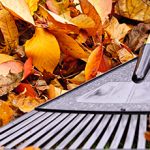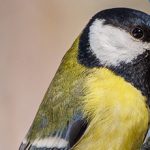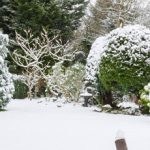Important gardening tasks not to forget in autumn
September 6, 2023 | Gardening Tips & Advice | No comments

As the weather starts to become colder and more autumnal, it’s important to prep and tidy your garden. No matter how big or small your garden is, taking steps to prepare it for winter will ultimately help it look its best when spring comes around! Read on to learn more about maintaining your garden for the coming months.
Clean out compost bins
If you have a compost bin, use your remaining compost around your garden to clean it out ready for a new heap. As you tidy up your garden you should have plenty of plant material for your new compost. For your new heap remember to turn it at least once a month to add air, to make the composting process more efficient. Remember compost should look and smell like dark brown soil.
Feed the birds

Think of our feathered friends and put food out for them. Birds need to fatten up in winter to survive through the coldest days and nights. Opt for a high-quality bird seed and try and replace the seed regularly. Try and keep a supply of water for the birds for drinking/ bathing and stop it freezing by placing a small floating ball in the water container. It’s important to keep food bowls and feeders clean too.
Bring houseplants inside
There are some precautions to take when bringing houseplants inside. Check the plants for any unwanted pests such as aphids and mealybugs and remove them. This is particularly important as the pests could end up infesting all your houseplants. If in doubt washing the plants with a hose is an option for extra caution. Place plants in an area with a good amount of sunlight and only water when needed, when the soil is dry.
Plant spring bulbs

Think back to spring and beautiful flowers flourishing across your garden. In order to get these delightful flowers for next year, plant your bulbs now. By planting them in autumn the flowers should sprout at the right time when spring comes around. When planting bulbs, holes should be three to four times the height of the bulbs themselves.
Net ponds
If you’re lucky enough to have a garden pond, remember to protect your fish by netting it. Netting is necessary to stop leaves decomposing in your pond and promoting algae growth, which is harmful to fish. Spread a fine mesh net across your pond and hold it down with bricks or rocks. Try to remove leaf build-up from the net regularly. The netting can also help to deter predators from your fish.
Remove leaves from the lawn

Don’t allow leaves to stay on your lawn, rake them or use a leaf blower to collect them. Fallen leaves stop the grass from getting sunlight and a plentiful air supply. There is also the risk of leaves developing mould, which is a bigger problem if it has rained or snowed as the damp leaves can cause rot on the lawn. You could also create leaf mould compost from your collected leaves.
Use an autumn feed
Your lawn needs some TLC to strengthen it and keep it going through winter. Use an autumn lawn feed that is high in potash but low in nitrogen, this will help protect grass from frosty conditions. Don’t use the same feed you used in spring/summer as it won’t have the right protection for grass in the autumn/winter.
It’s also important to maintain your garden equipment. Clean excess grass from your lawn mower carefully on and around the blades and store away. Give garden tools a clean and try and prevent rusting by oiling metal and wood parts with linseed oil.
If your home is in need of decluttering, learn more about the ways you can get organised in our 7 tasks to help declutter your home blog.
Tags: Autumn, Autumn garden, garden, Gardening Tasks






